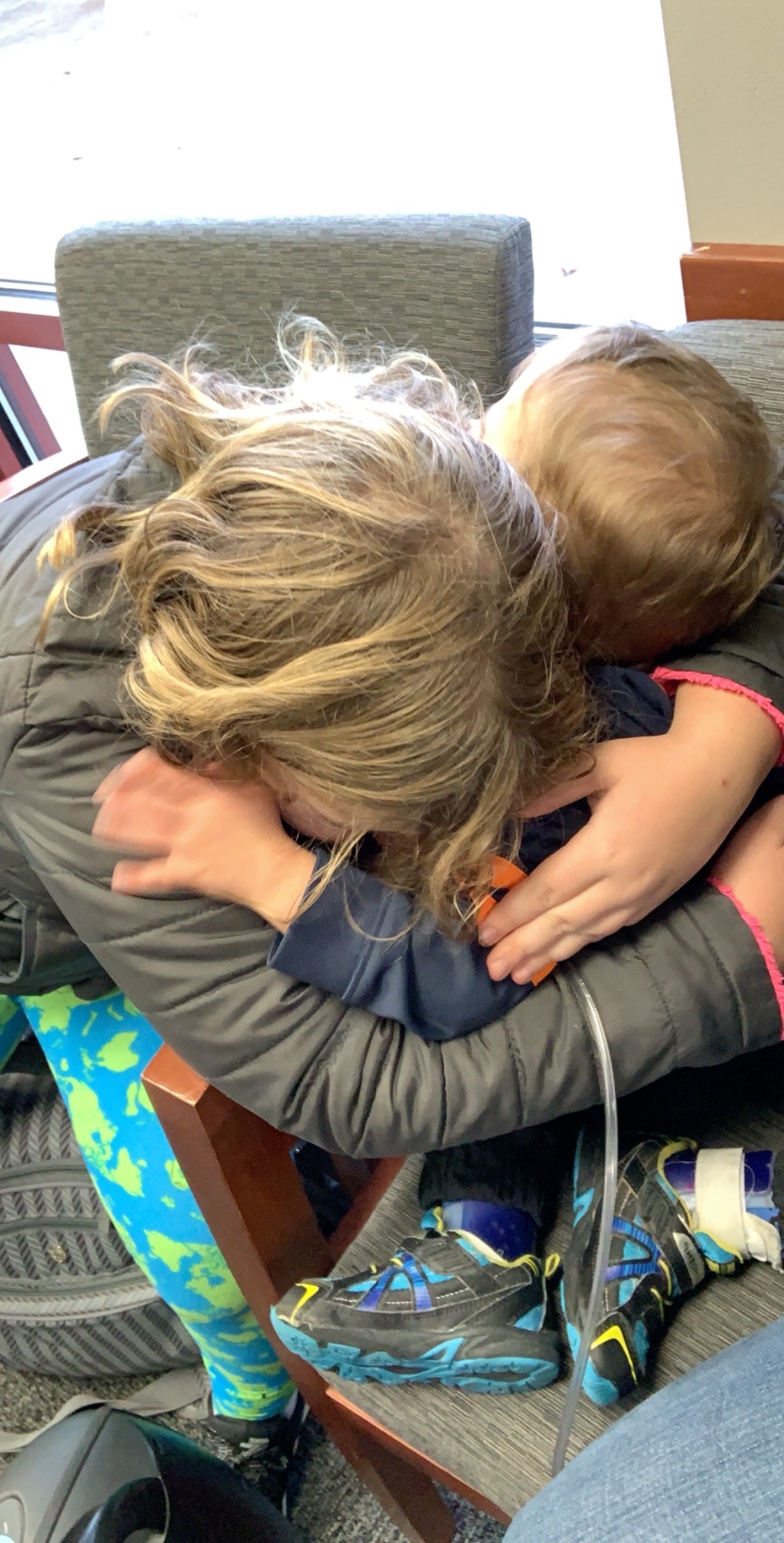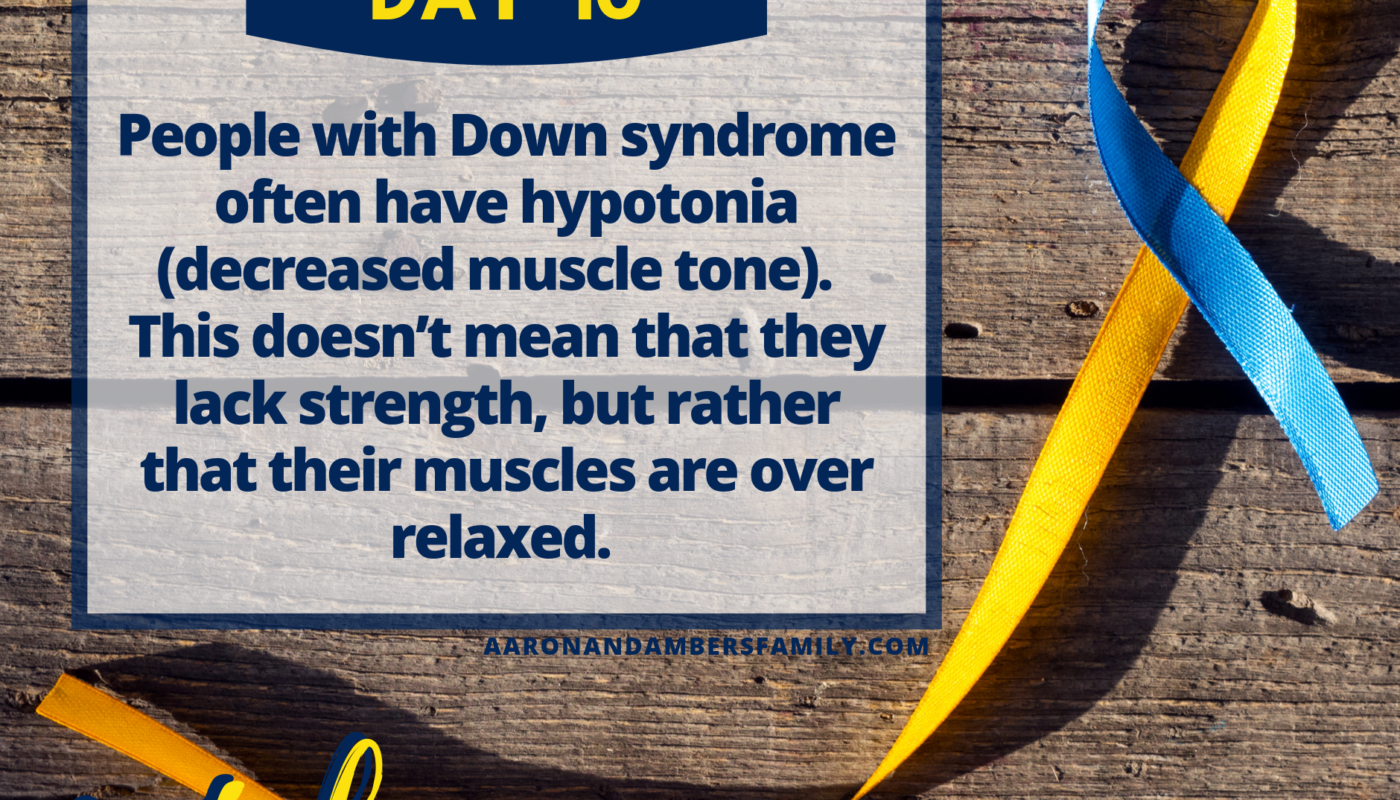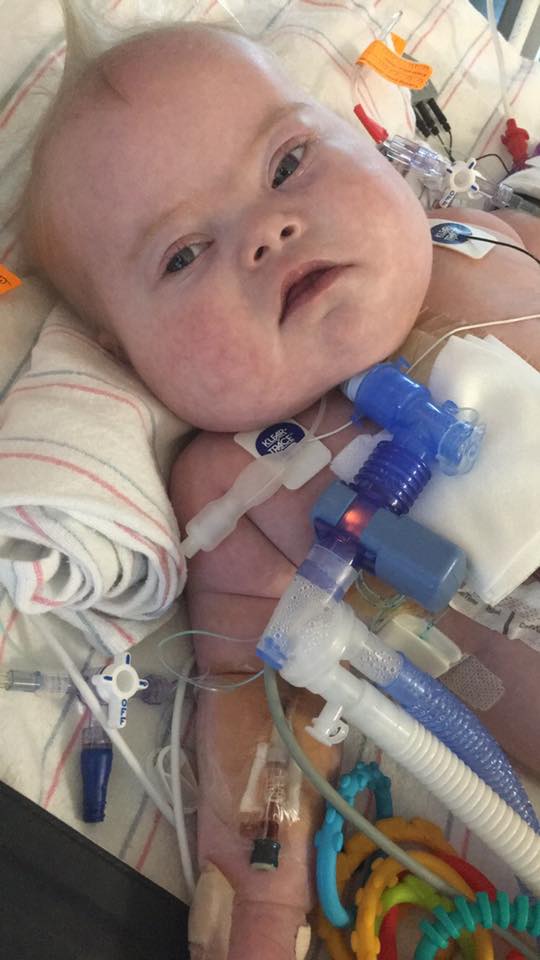I remember the first time I learned of hypotonia. AJ was maybe four or five months old and his physical therapist in the PICU at the University mentioned something about his “low muscle tone.” She showed me how his head would lag when he was pulled up by the arms.
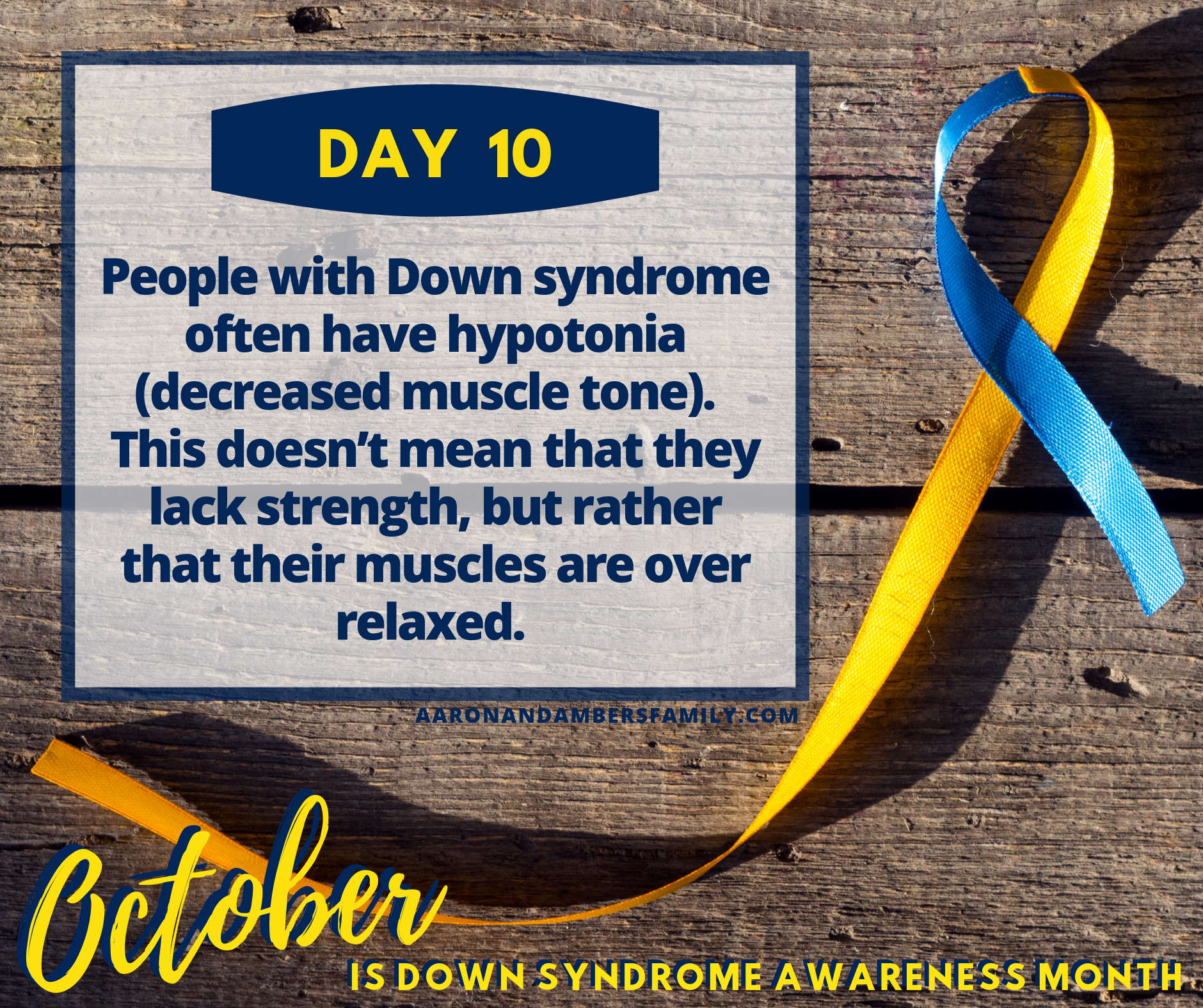
I was confused though. Low muscle tone to me meant low strength. And this kid was anything but weak. He was strong. Not just for everything he had been through, but also in terms of how hard he could grip things (most often my hair) and pull on things to get what he desired. I shrugged it off and just assumed she didn’t know what he was talking about, because this kid had a serious grip!
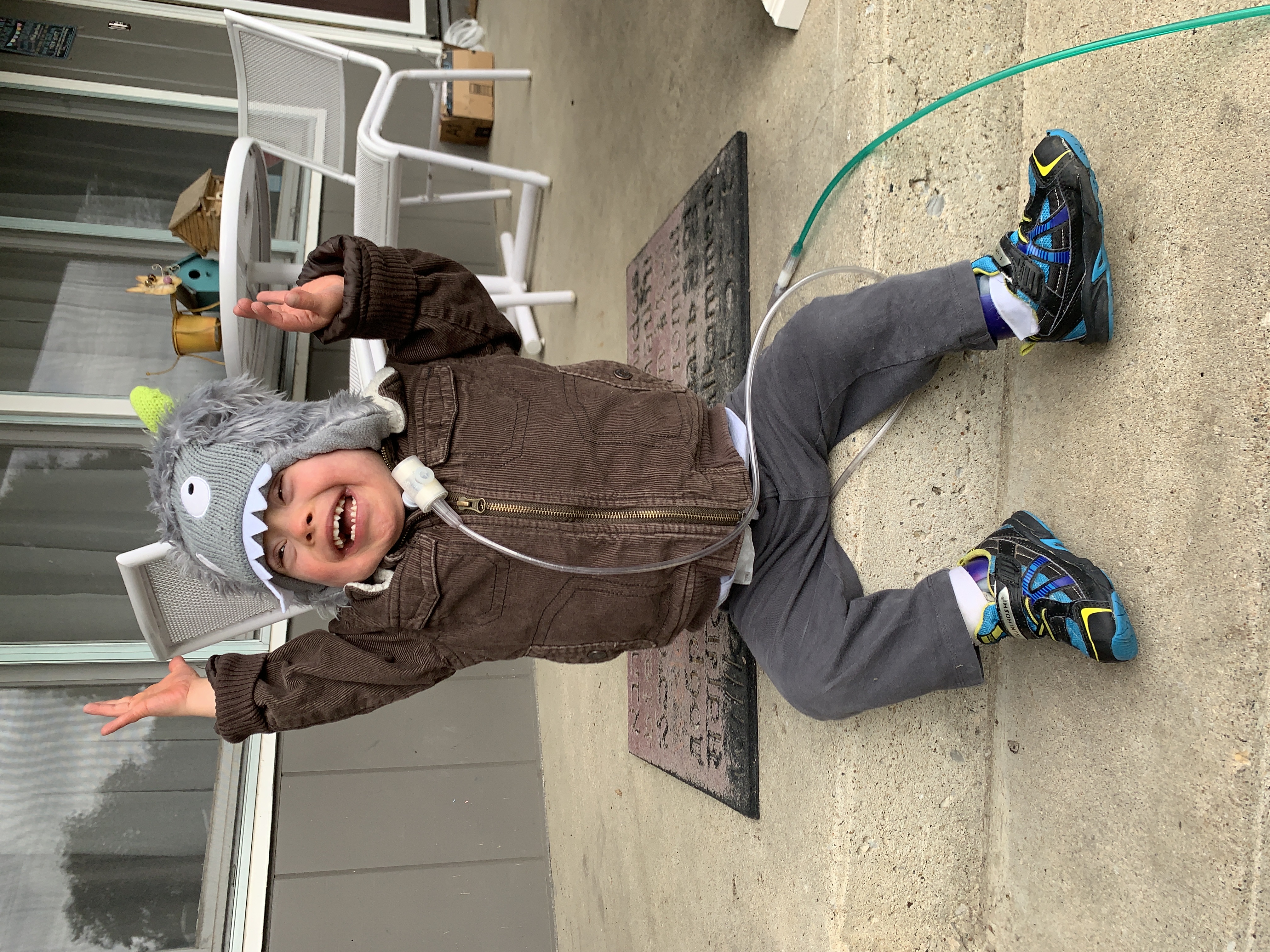
It wasn’t until much later — like, we’ve been home from the hospital for a few months later — that I finally realized that hypotonia and strength were NOT the same thing. Guess that physical therapist (you know, the one who went to school for this?) actually DID know what she was talking about! Oops?
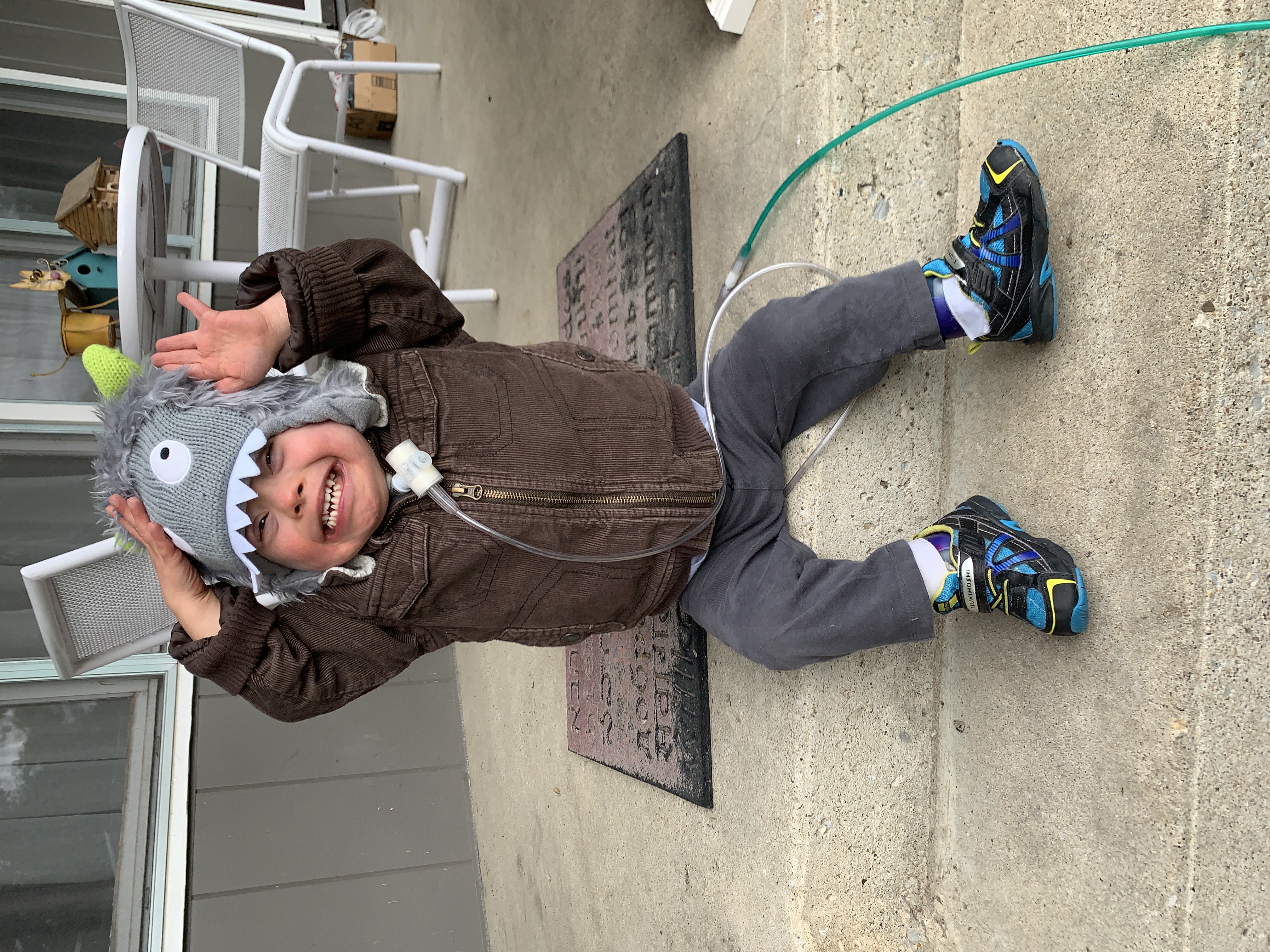
Hypotonia essentially means that AJ’s muscles are too relaxed. It means that finding stability is harder for him, and that he needs to wear braces on his ankles to help support him as he walks.

Kids are smart, and resilient. They can learn to compensate for the lack of support even without braces. Often though, it’s to the detriment of another part of their body. That’s why it’s so important for AJ to wear his braces.
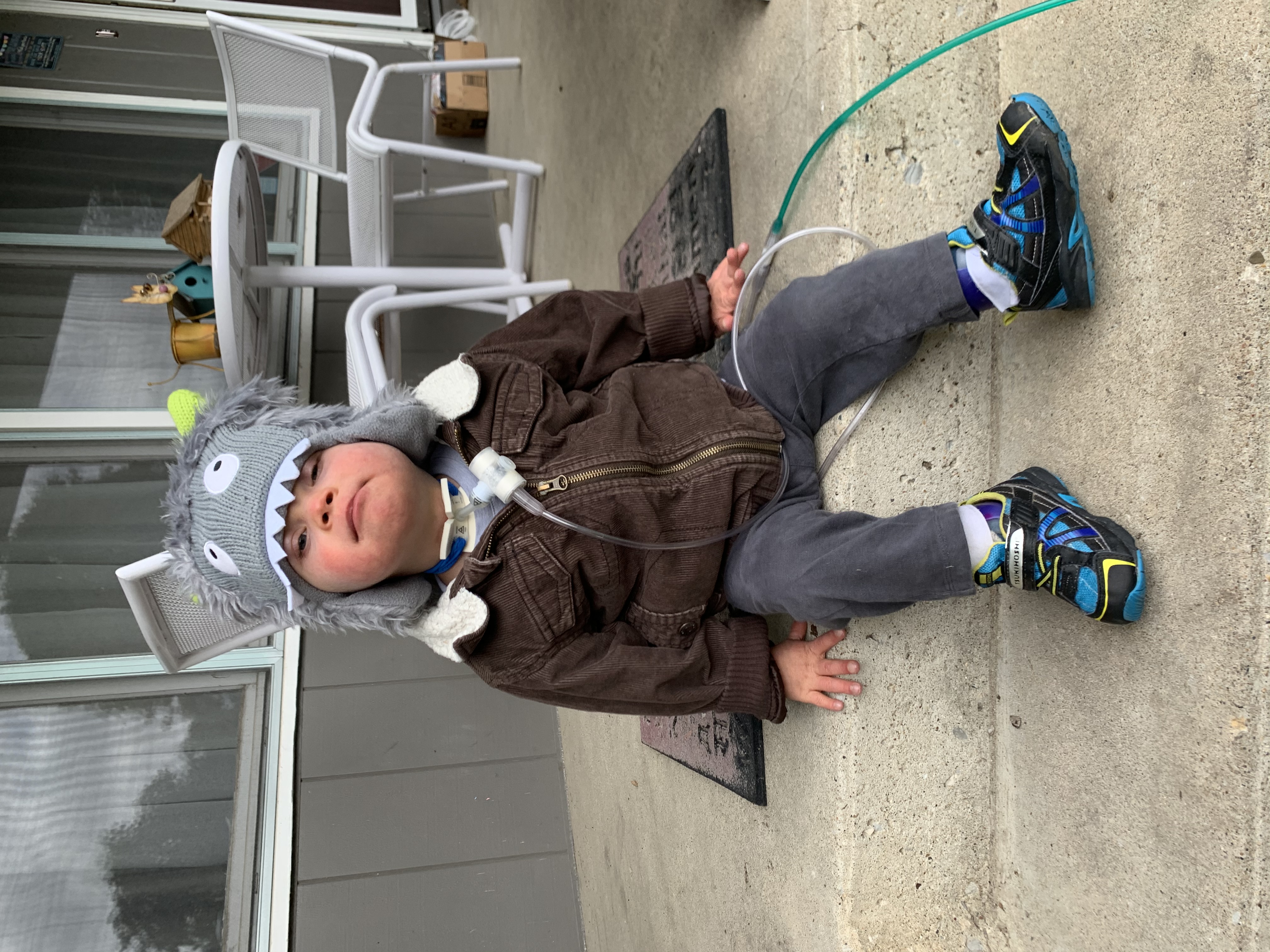
Hypotonia also means that AJ gives the most amazing hugs, because when he relaxes, he’s loose and cuddly and comfy. Anyone who has ever hugged AJ can vouch that he is the absolute best hugger ever. Especially when he throws in some shoulder pats or kisses too. It just melts me, and is one more piece of the puzzle that makes AJ who he is.
